This little baby generated 35,859 leads in 60 days…

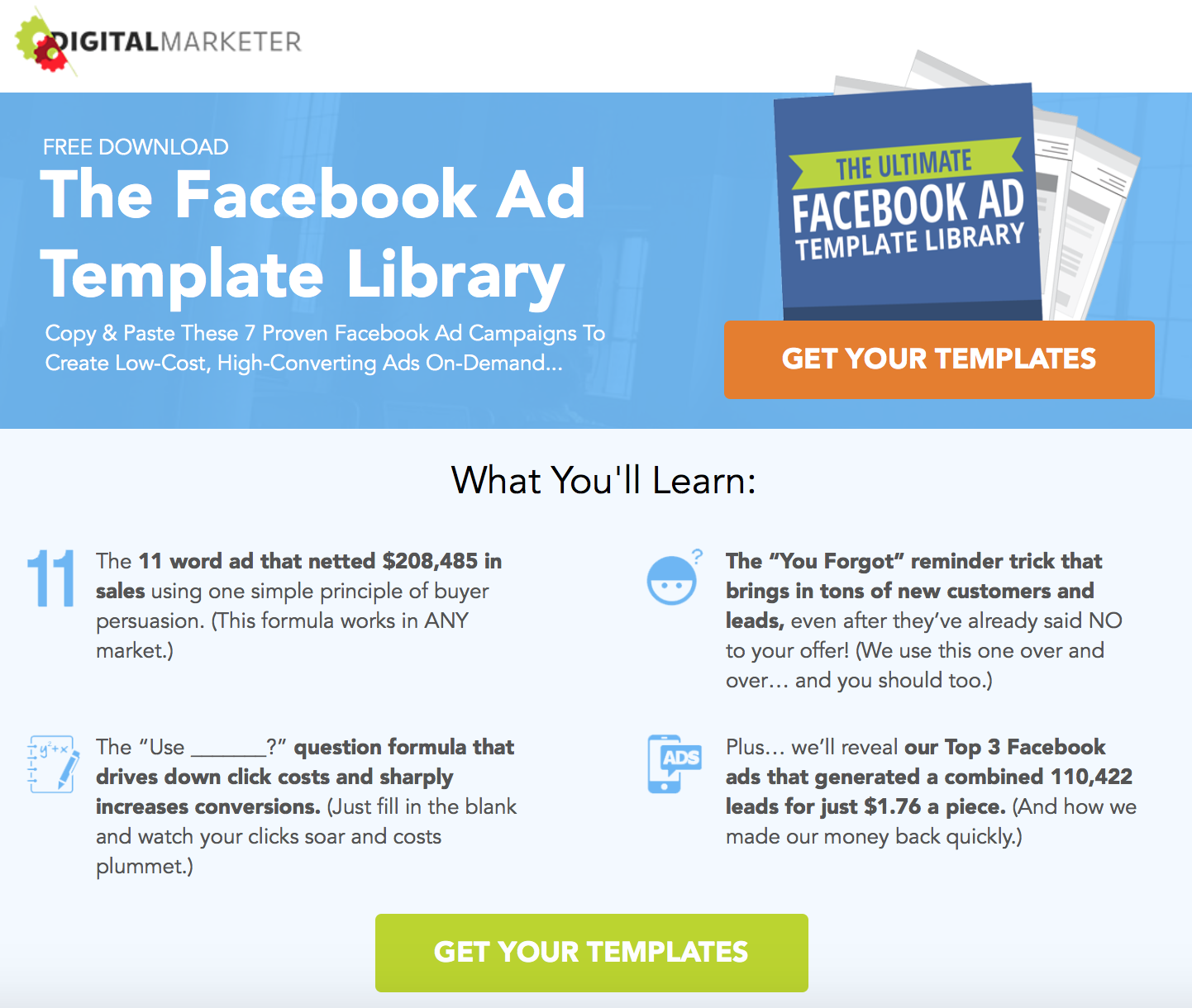
It’s called a Lead Magnet, and if you don’t have one — or don’t have a good one — this article could literally change your life.
Lead Magnet — noun — an irresistible bribe offering a specific chunk of value to a prospect in exchange for their contact information.
The goal of the Lead Magnet is to maximize the number of targeted leads you are getting for an offer.
It’s the first step in my Customer Value Optimization process.
We’re going to look at nine different types of Lead Magnets in this article and the absolutely WRONG question most businesses are asking about generating leads.
But first, you must understand the single most important element of a successful Lead Magnet…
Specificity
I have great news.

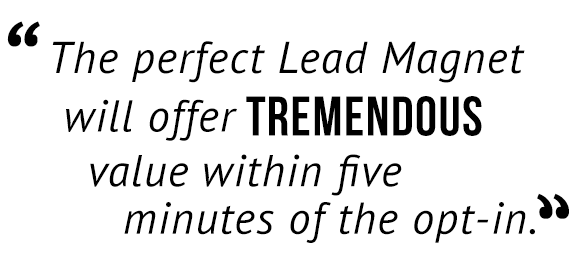
In fact, a long and complex Lead Magnet will likely convert poorly.
You simply need to solve a specific problem with a specific solution for a specific segment of your market.
Here’s the key…
Your Lead Magnet must be consumed by the prospect for it to have an impact.
The perfect Lead Magnet will offer tremendous value within five minutes of the opt-in. This is a “rule of thumb,” of course.
But we don’t recommend, for example, a mini-course delivered over 14 days or a 300-page ebook as a Lead Magnet. These Lead Magnets take too long to consume and are unlikely to be specific.
Notice how simple and specific this Lead Magnet is…


On the other hand, this Lead Magnet is non-specific and takes 20 weeks to receive the full pay off…


Shoot for the former and not the latter when creating your Lead Magnets. The good news is that the first one is much easier to create than the second one — and it will convert better.
Specificity is the most important element in our 8-Point Lead Magnet Success Checklist (you’ll get the entire checklist at the end of this post), but there are actually seven other elements that matter when creating your Lead Magnet.
Let’s look at some Lead Magnet types (with examples) that do it right, and then we’ll cover the eight points that must be included in every Lead Magnet…
1. Guide/Report
Reports and guides are among the most common types of Lead Magnets.
If you use a Lead Magnet of this type — be careful. You could easily violate the specificity rule with this kind of Lead Magnet.
Here’s an example free guide Lead Magnet opt-in from HubSpot…

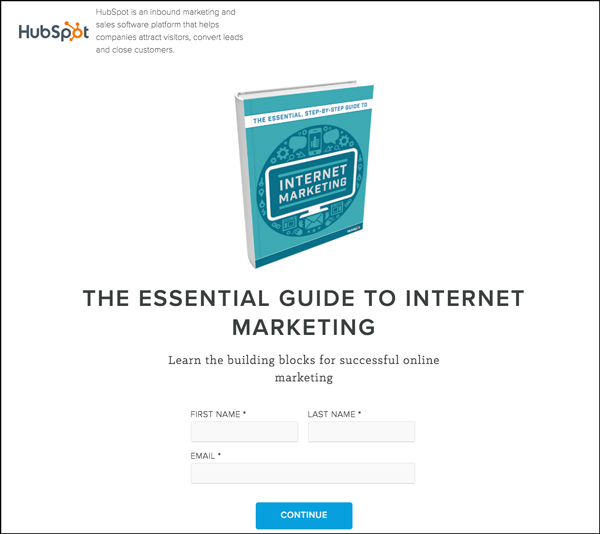
And a free guide for leads that will be visiting New Orleans…

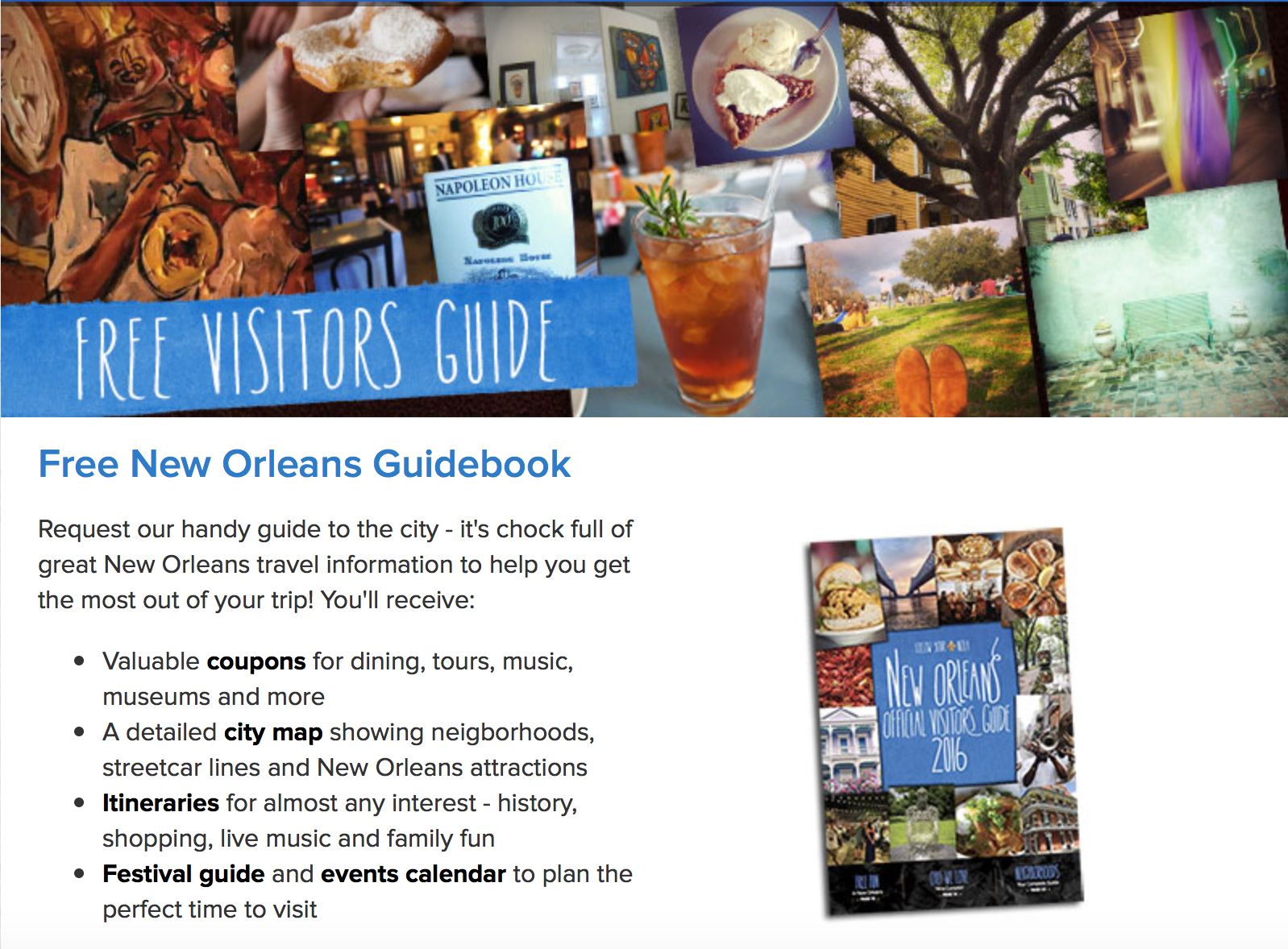
2. Cheat Sheet/Handout
Cheat sheets and handouts work well.
They have a different “feel” to them than reports or guides.
They are generally very short (one page or so) and cut straight to an ultra-specific point. You can deliver these as checklists, mind maps, or “blueprints.”
Here’s an example of a cheat sheet used as a Lead Magnet…

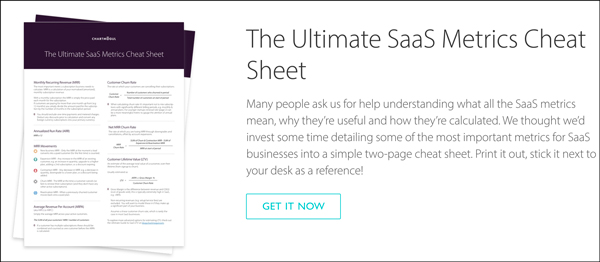
Notice how the actual content is blurred out to build curiosity?
Here’s another…


And another…

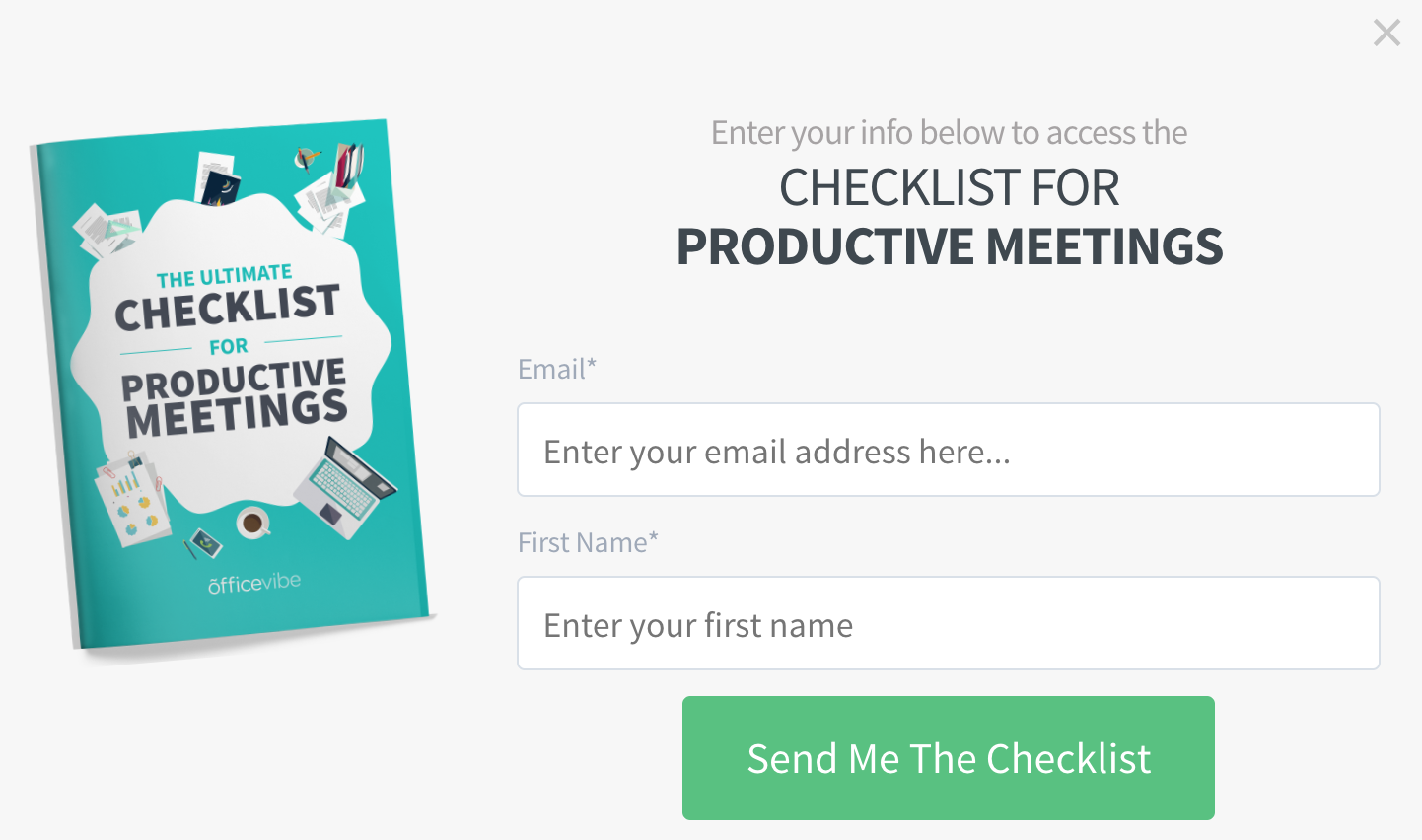
3. Toolkit/Resource List
A toolkit or resource list can make a great Lead Magnet for the right business and market — this can be delivered as a “starter kit,” or templates, or a glossary of things they need to know.
Design Thinking for Educators offers this free toolkit for process overview, methods, and instructions that help put Design Thinking into action, and the Designer’s Workbook to support your design challenges…

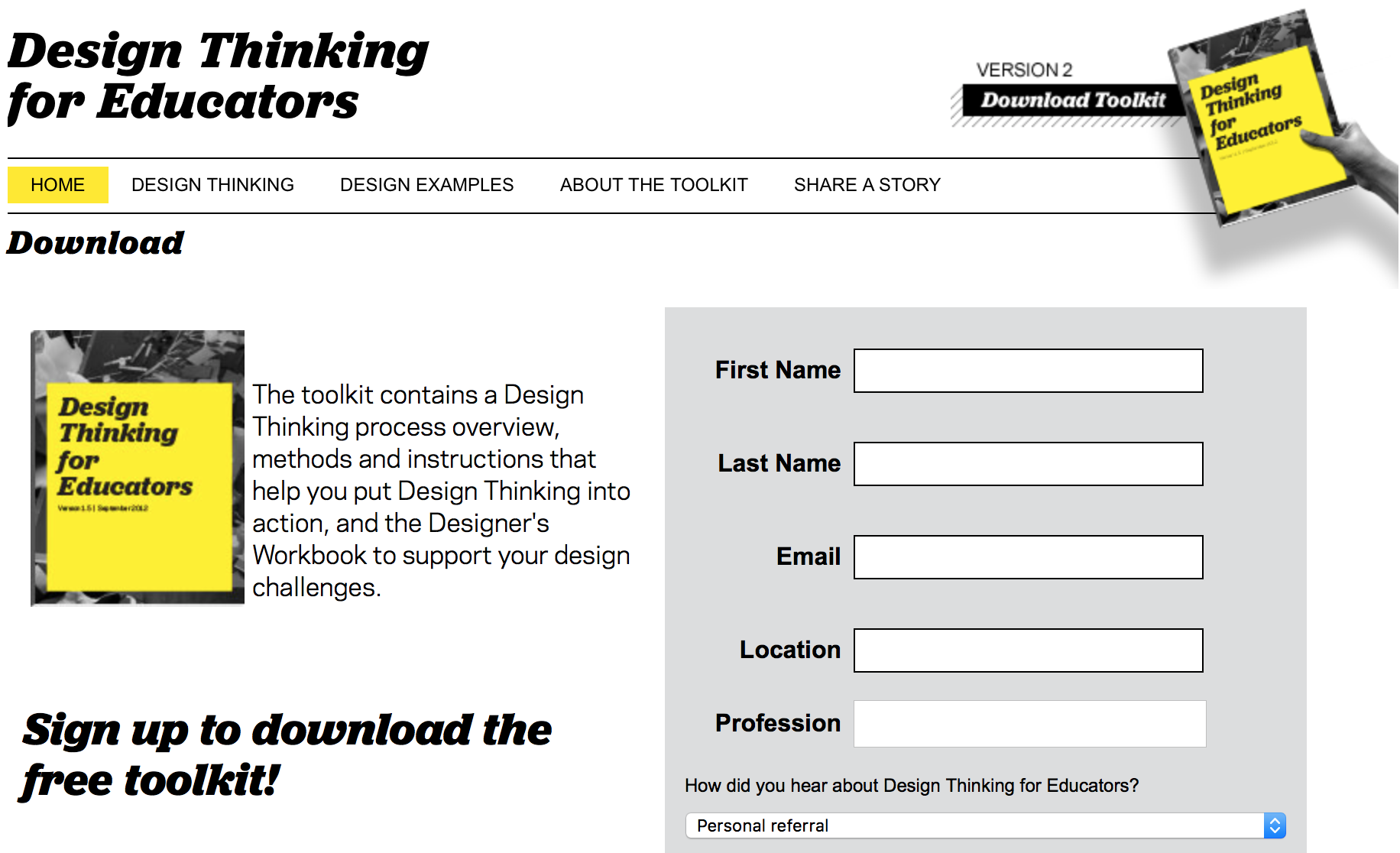
This company is offering their “Time Management Toolkit” in exchange for contact information…


And this is one of the tools that is delivered after the Lead Magnet is taken by the prospective lead…

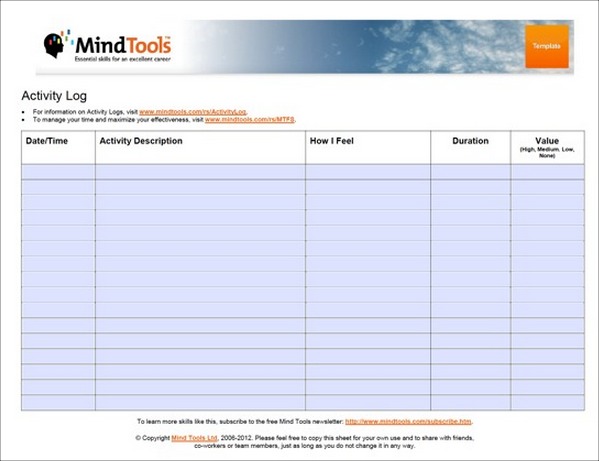
Trello gives their prospects templates to get started in exchange for their contact information…

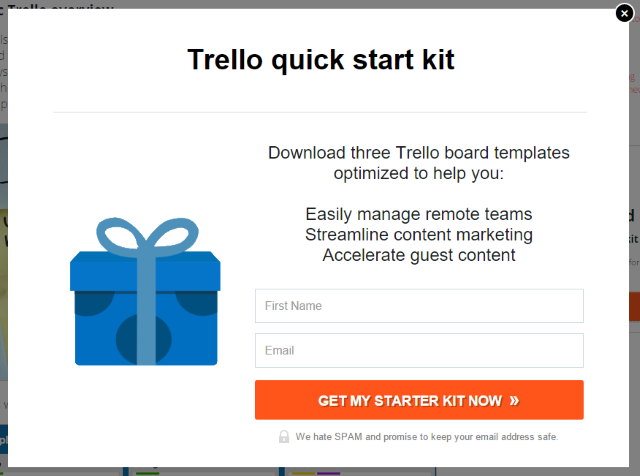
What about this “index,” which is a fancy term for resource list…

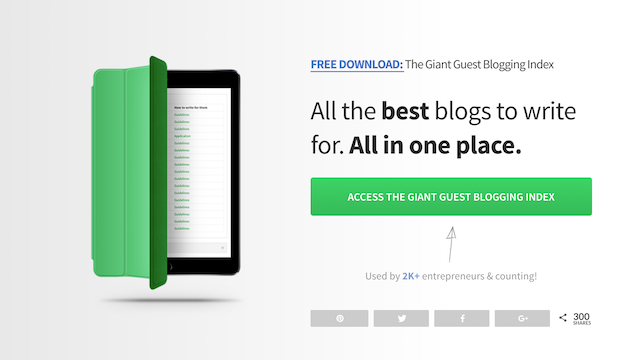
Want to shift your fear to flow? This is a great toolkit for accomplishing just that:

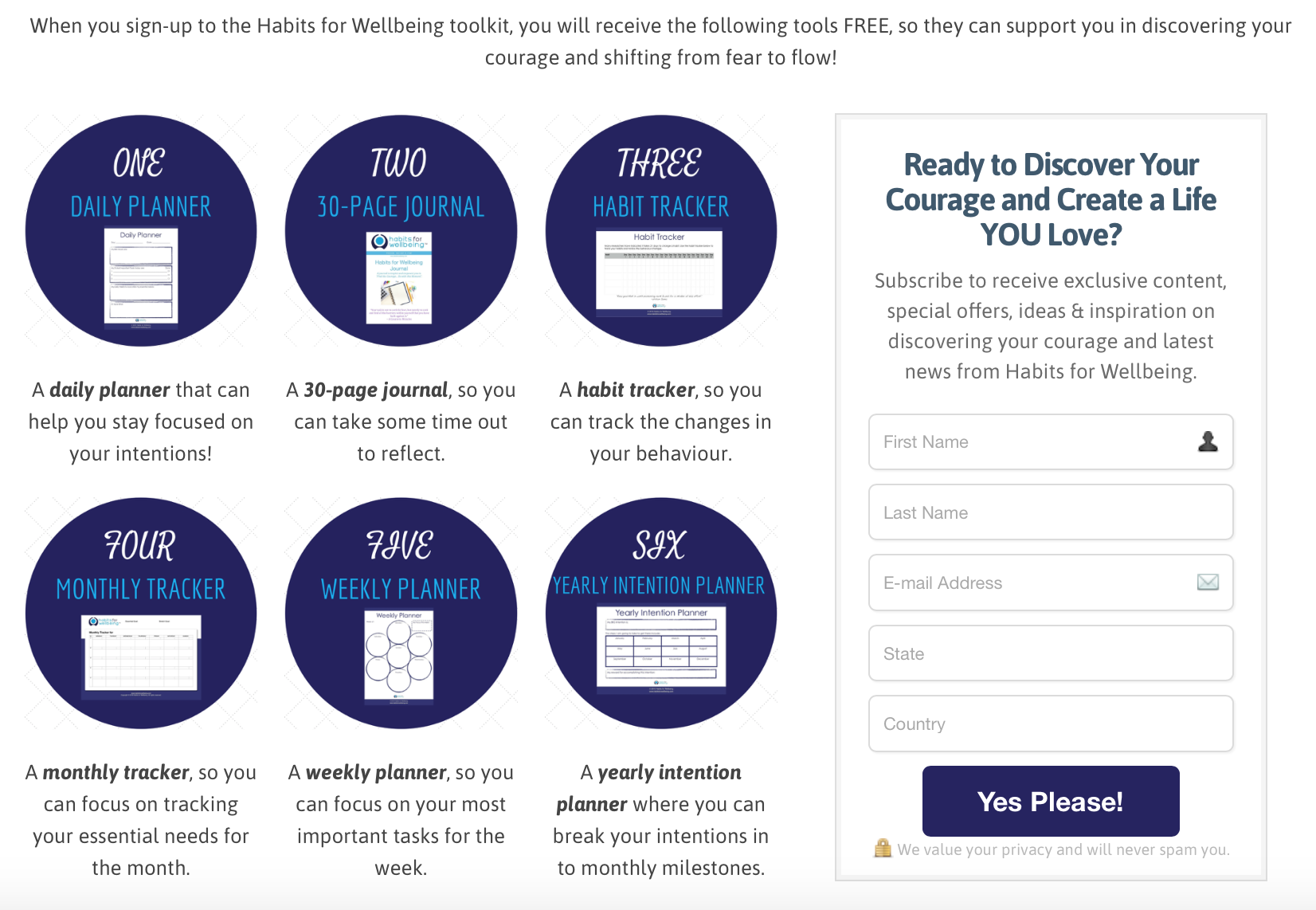
4. Video Training
If it makes sense, and you have the skillset, video can be a very effective way to deliver on your Lead Magnet.
Here, Marketo is using a video tool demo as a Lead Magnet to entice people to try out their tool…


5. Software Download/Free Trial
Software companies often offer a free trial of their software as a Lead Magnet.
Here’s how Bidsketch, a SaaS proposal building application, asks for an opt-in to start a free trial…


What about this one from MeetEdgar?

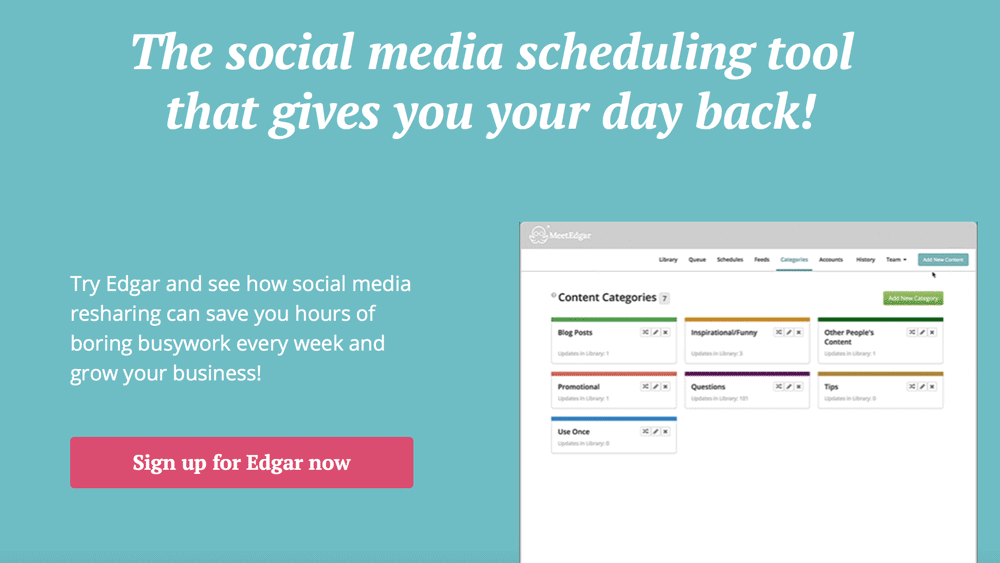
6. Discount/Free Shipping
For those selling physical products on or off-line, discount clubs or free shipping offers can be an effective Lead Magnet type.
Here’s how Verizon generates customers using an offer for free overnight shipping…


And Framebridge offers a discount in exchange for a prospect’s contact information…

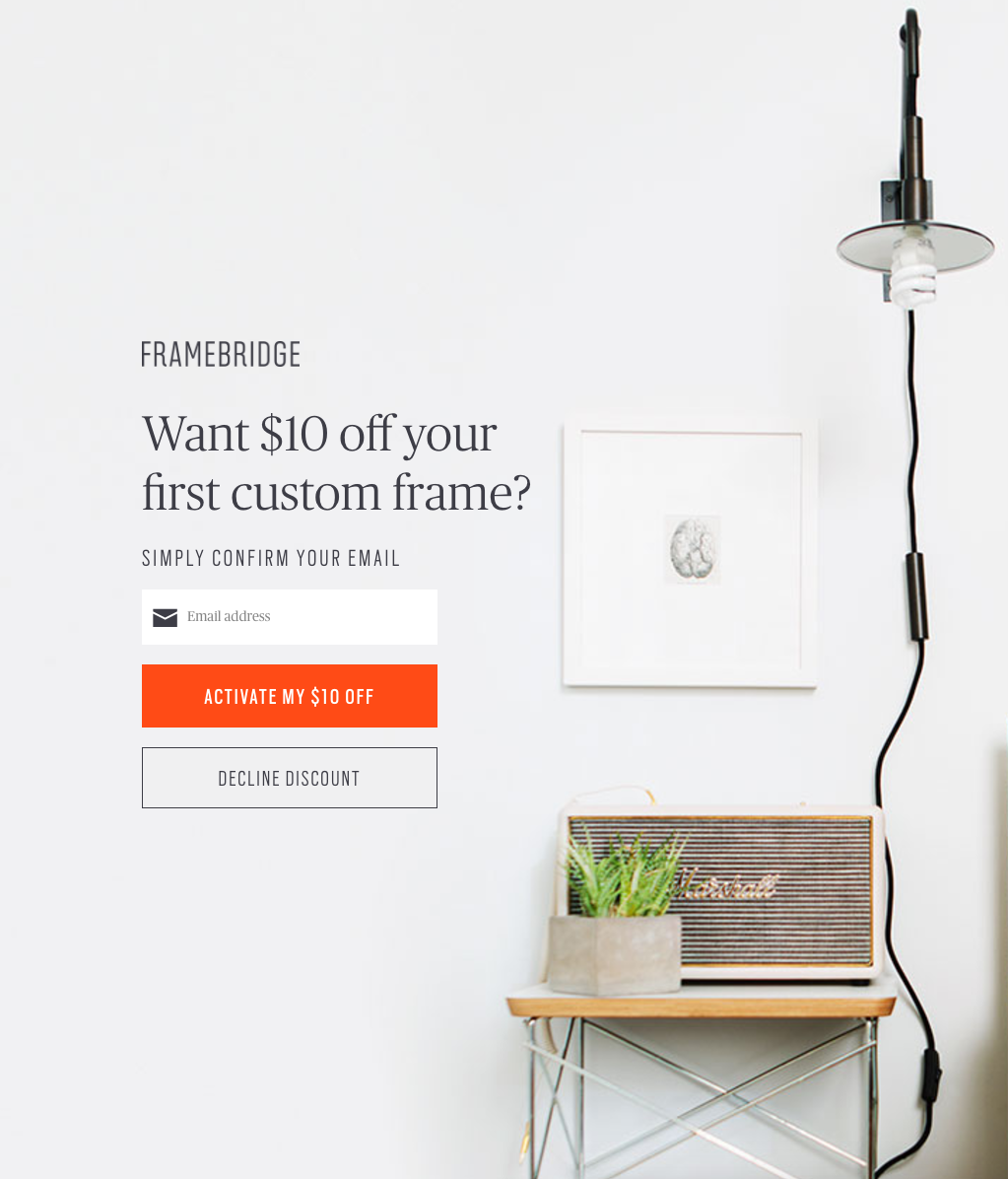
Or how Code&Quill offers a 10% discount on their boutique notebooks in exchange for contact information…

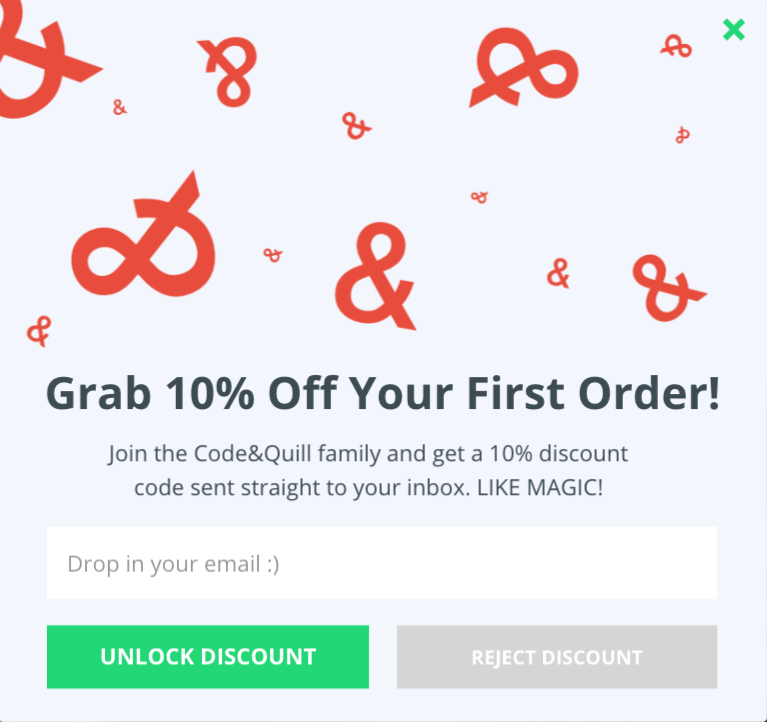
Kate Spade owns this game by combining free shipping + a discount…


7. Quiz/Survey
An online quiz or survey can be a very engaging way to generate new leads. To get the results of the quiz or survey, participants must give an email address. The results will then be delivered to that email address.
You can use a quiz building tool like Interact to create these quizzes.
This is what a Quiz Lead Magnet offer looks like on the home page of a home improvement company.


The quiz is a fun and interactive way to capture new leads. Here’s a question from this quiz…

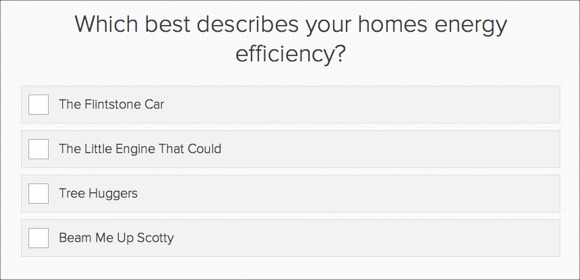
Once all the quiz questions are answered, the prospect is presented with this opt-in form…

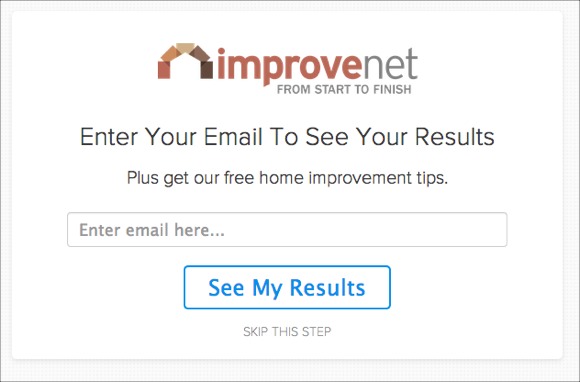
8. Assessment/Test
An assessment or test, particularly if it is delivered online to increase the speed of consumption and gratification, can make a powerful Lead Magnet.
Hubspot has been generating leads with their “Marketing Grader” for years…

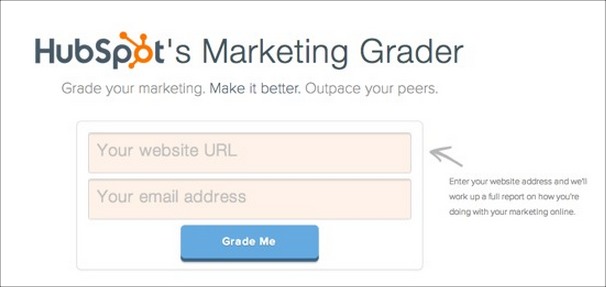
Want to assess your child’s behavior? There’s an assessment for it:

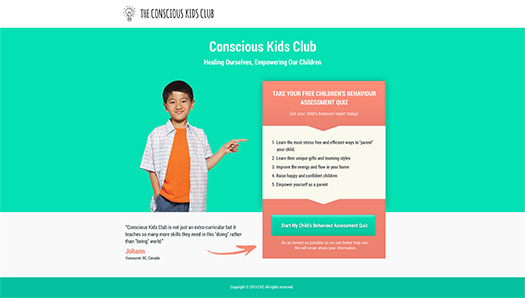
9. Blind/Sales Material
In some cases, the most desired piece of information for the market is pricing and descriptions of products or services.
Ikea harvests contact information in exchange for their catalog. And they can deliver it digitally to speed up consumption and gratification.

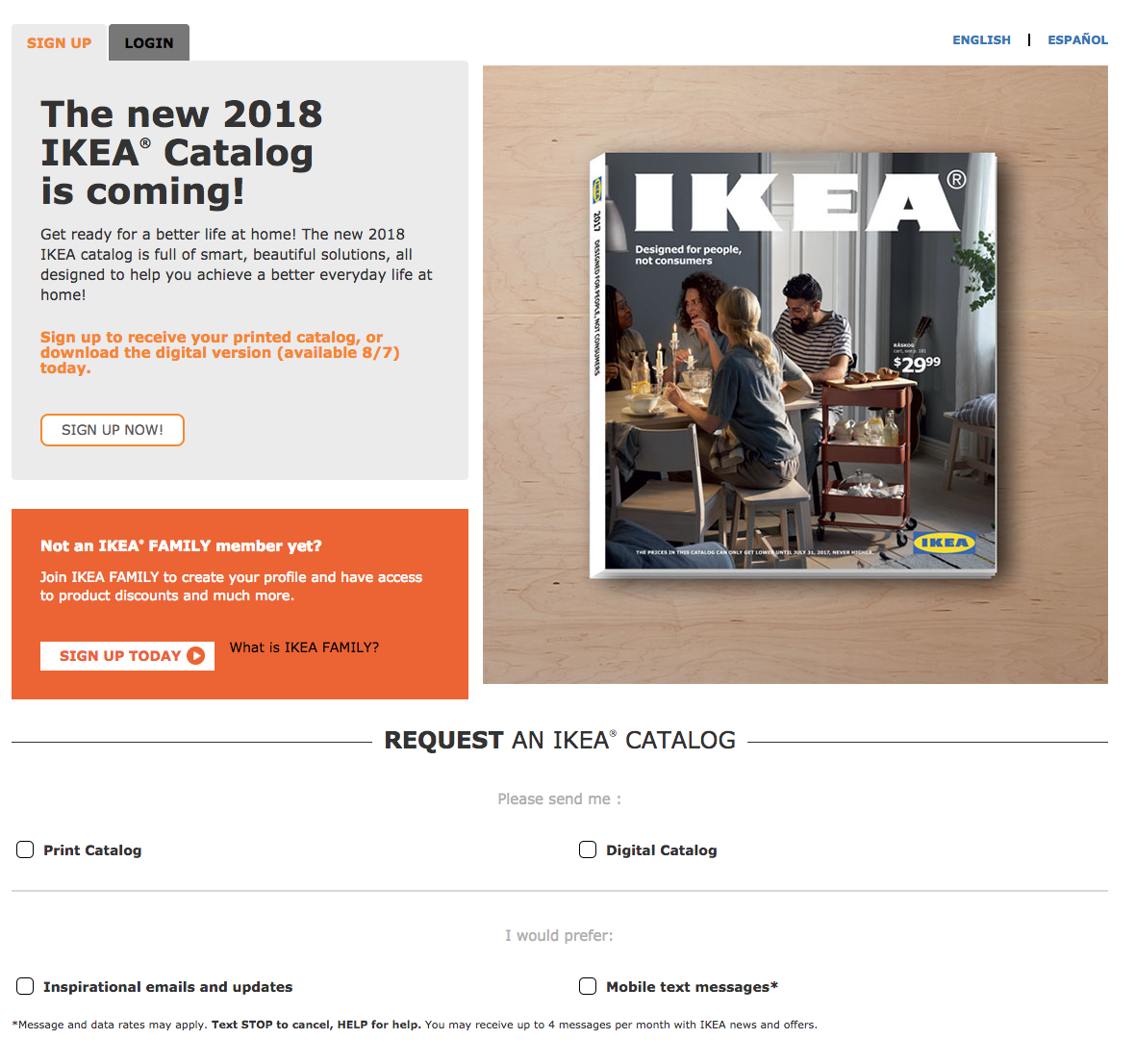
Now that you’ve seen several Lead Magnet examples, are you ready to talk about what exactly makes a successful Lead Magnet? Let’s get into the…
8-Point Lead Magnet Success Checklist
1. Ultra-Specific
Do I sound like a broken record yet? 🙂
I’ll repeat specificity more times than you can count because it’s just that important.
Lead magnets should NEVER be vague. They must offer an ultra-specific solution to an ultra-specific market.
2. One Big Thing
Everyone wants a “magic pill” or “silver bullet,” so it’s always better to make and deliver one big promise as opposed to a lot of little ones.
We showed you this example earlier a Lead Magnet that delivers on one ultra-specific promise…


Now, take a look at this Lead Magnet that is specific (you know you’re about to learn the in’s and out’s of WordPress), but doesn’t deliver on “One Big Thing”…

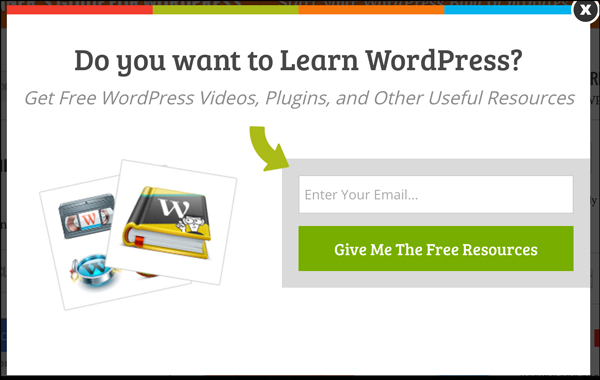
3. Speaks to a Known Desired End Result
What does your market REALLY want?
If you can figure that out and offer a Lead Magnet that promises it, prospects will gladly give you their contact information.
4. Immediate Gratification
Avoid using newsletters and multi-day courses as a Lead Magnet.
Your market wants a solution and they want it NOW.
5. Shifts the Relationship
The best Lead Magnets do more than inform…
They actually change the state and mindset of your prospects so they’re pre-framed to engage in future business with your company.
6. High Perceived Value
Just because it’s free, doesn’t mean it should LOOK free.
Use professional graphics and imagery to establish real monetary value in the mind of the visitor. 

7. High Actual Value
If your Lead Magnet is all sizzle and no steak, you may get prospects’ contact information, but you’ll lose their attention.
To win, you must promise AND DELIVER the goods.
8. Rapid Consumption
You don’t want your Lead Magnet to be a roadblock in your sales funnel, so, ideally, it should be able to be consumed or experienced within five minutes.
The Lead Magnet Thank You page is often where we make our next offer.
If the Lead Magnet is difficult to consume (a 300-page book, a 30-day email course) the conversion rates on this offer suffer.
Here’s the big takeaway… Many of the items in this checklist boil down to this underlying principle: Specificity matters.
Take a look at your Lead Magnet through the eyes of this checklist.
Are you promising too much? If so, test something more specific.
Now, I know what you’re thinking after getting this far…
But, How Do I Get Traffic to My Lead Magnet?
Wrong question.
The fact is that traffic is all around you.
Google, Facebook, and LinkedIn (just to name a few obvious sources) have millions billions of users they’ll happily send to your Lead Magnet.
(RELATED: 7 Lessons Learned from 1,140 Facebook Ad Campaigns in One Year)
You just need to cut them a check.
The right questions to ask are:
- What offers will I make to new leads?
- How well do these offers convert?
- How much is a visit to my Lead Magnet landing page worth?
- How much is a new lead worth?
- How much is a new sale worth?
What if I told you that every time you generated a visit to your Lead Magnet landing page you made a $10 profit? Could you get traffic to that page?
Sure, you could spend up to $10 to generate that visit without losing money.
(RELATED: How 6 Pro Marketers Would Spend $10/day Buying Website Traffic)
It isn’t difficult to answer these questions.
Start by understanding the complete Customer Value Optimization process. The Lead Magnet is Step 1 of the 5-Step process.
Then, understand these two simple metrics that determine what traffic, leads, and new sales are worth to your business.
You don’t have a traffic problem.
With the right Lead Magnet in place and a funnel behind it… your business will become a lead and sales generating machine.
Download the 8-Point Lead Magnet Success Checklist now.













